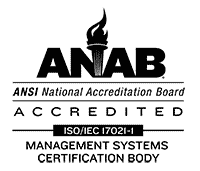Why do I Need a Court Certified Interpreter?
As of 2008, Pennsylvania has joined the National Consortium for Language Access in the Courts. It is a court-certification interpreter program that is mirrored in almost every state throughout the United States. Every court in the state is now required to use only court certified interpreters for civil, administrative and criminal procedures to ensure that every individual who is LEP (Limited English Proficient) is guaranteed his right to due process and a fair trial.

What does it take to become a court-certified interpreter? It is in fact, a rather difficult feat. In Pennsylvania, the interpreter must attend a two-day workshop that reviews court ethics, as well as take an examination that includes written as well as oral testing. The written exam has 130 multiple choice questions in English, followed by a written translation exam. If the interpreter passes the written portion, he or she moves onto the oral exam, which is even more challenging.
The full oral proficiency exam consists of all three parts: sight translation (interpreting in a foreign language based on an English source text), consecutive and simultaneous interpretation. The interpreters are then classified either as master (scoring an 80% or above) or certified.
What happens when there is no court-certified interpreter in a state for a given language? One option is to use a court-certified interpreter from another state and compensate their travel to the local court. Another is to consider contracting a professional language company to assist in procuring a qualified language professional. This is especially advisable when dealing with rarer languages. Languages for which there is a full exam in Pennsylvania include Arabic, Cantonese, French, Haitian-Creole, Hmong, Ilocano, Italian, Korean, Laotian, Mandarin, Polish, Portuguese, Russian, Somali, Spanish, and Vietnamese. The languages for which there is an abbreviated exam include Arabic (Egyptian Colloquial), Bosnian, Croatian, German, Serbian, and Turkish.
Also, when document translations are required, it is best practice to hire a professional translator who is also a court-certified interpreter; in the event that any kind of testimonial or statement of authenticity would be required should the case go to trial. It is less likely that the accuracy and admissibility would be challenged if it is then introduced as evidence.






